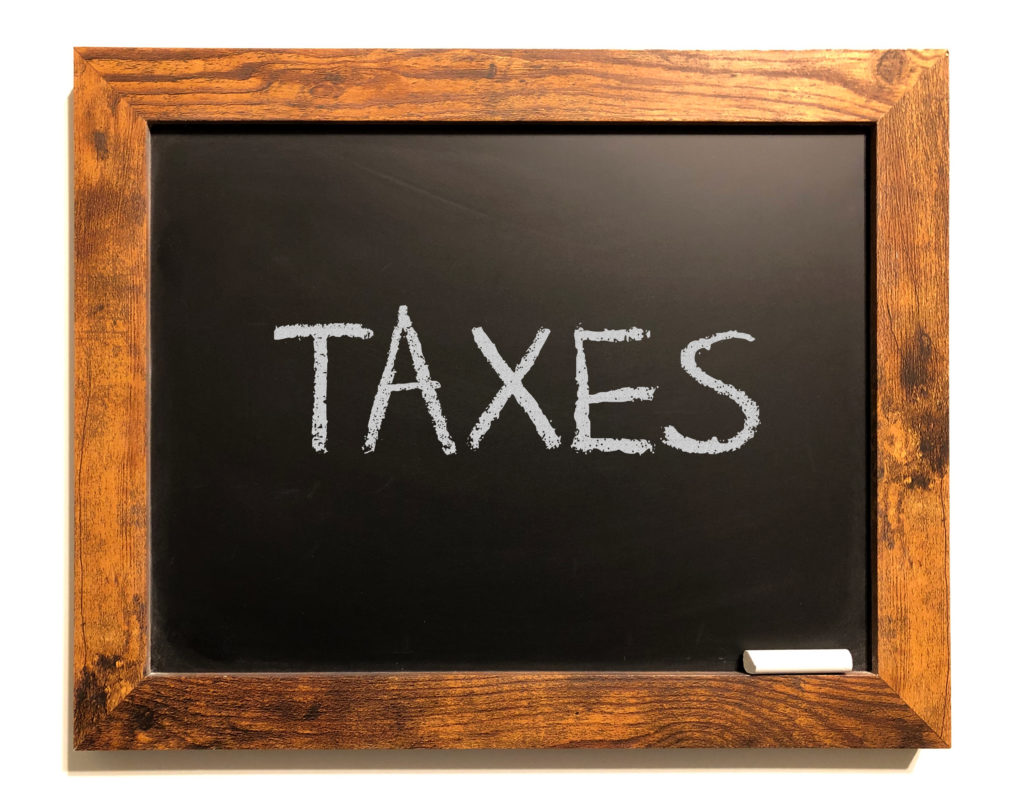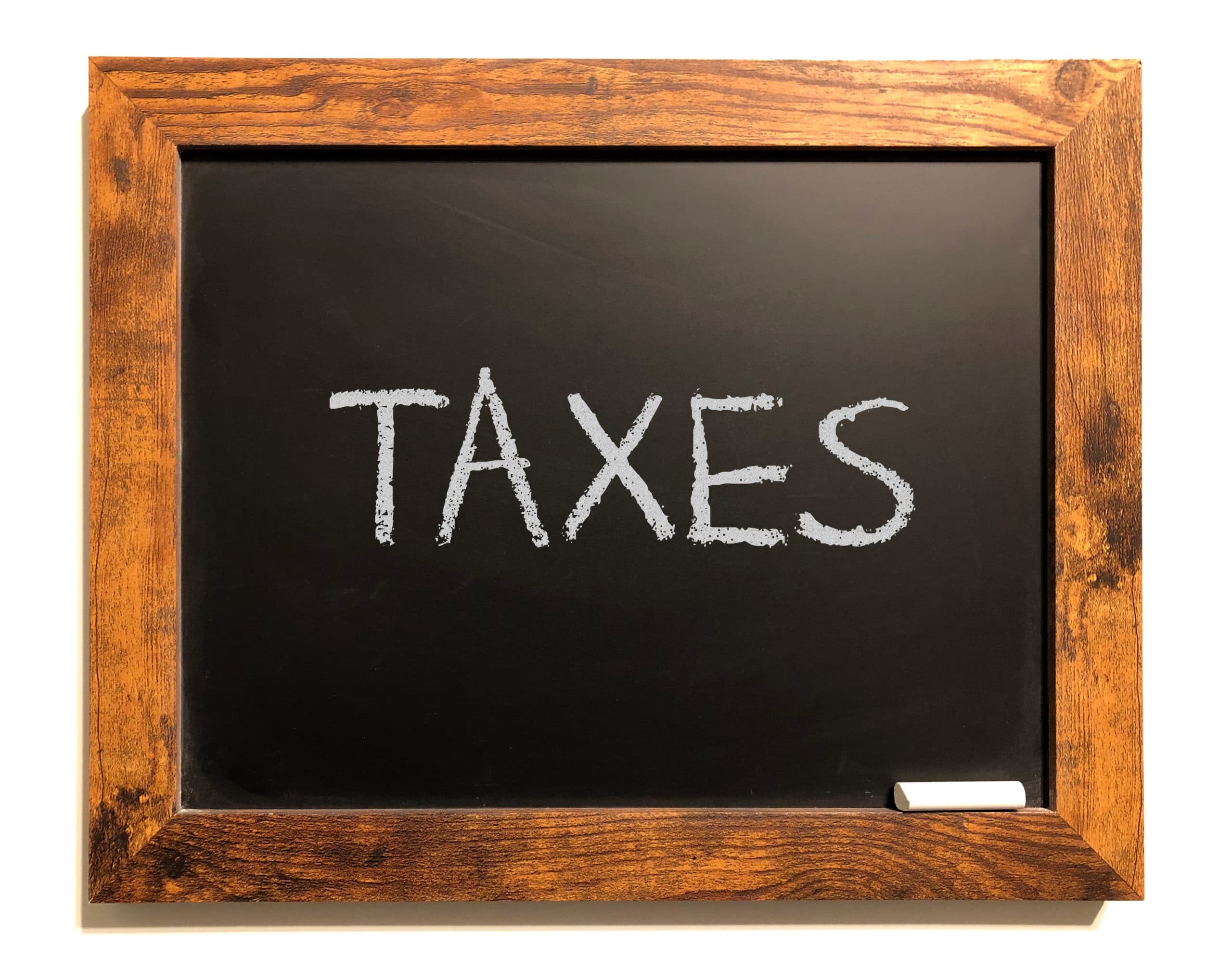When I first came across FIRE, there was a lot of content focused on US and Canadian tax systems which on the surface seem much better in terms of investments and I scoured the internet to find similar ways to invest in Ireland as favourably to no avail. It seems that the Irish government has de-incentivized savings as they’d prefer people to stimulate the economy and spend instead. Every investment option is so punitively taxed that it almost seems worthless. I even considered moving my money back to Canada to invest it there but would have complicated matters from both a tax and foreign exchange perspective.
However… leave it to me to figure out a way to justify anything (just ask my husband), I think I found a way to put my complaints to rest based on 3 things:
- Income tax rates are not as bad as they seem
- Earning potential is higher in Ireland
- Earning some interest is better than earning no interest

1. Income tax comparison
When I took a step back and compared my Canadian income to my Irish income I realised something interesting. The taxes aren’t that different.
Looking at my husband and I’s combined take home in Canada and dividing by the gross income as per our tax slips, the net effective tax rate was 29%. When I compared that to the following 12 months in Ireland, the net effective tax rate was 33%, so not much difference and we were earning more.
Income tax bands
One of the big differences that make the income taxes more comparable is that in Canada in 2019, an individual can only earn the equivalent of 8,238€ before you start paying taxes, but in Ireland you can earn 16,500€ before you start paying the 20% rate (this is the net effect of the 3,300€ and 1,650€ credits).
So while it seems that on the surface you are paying 52% income tax for anything over 35,300€ in actuality it looks something like this:
| Salary range | Income tax | Tax rate calc |
| 0 – 16,500€ | 0.9% | 0% + 0.9% USC |
| 16,501 – 35,300 | 0.9% – 26.5% | 20% + 4% PRSI and 2.5% USC (on 35,200 sample) |
| 35,300 and up | 26.5% – 52% | 40% + 4% PRSI and 3.15% USC (on 50,000 sample) |
Looking at sample salaries starting with 20,000, which is just above minimum wage, here is what you actually pay in tax including PRSI and USC payments when you take into account your basic income credits and personal allowances, these figures do not include any other tax credits that may be applicable to you like medical or home carer credits which would further reduce the net tax rate:
| Individual Salary | 2 Incomes | Net tax rate (inc PRSI and USC payments) |
| 20,000 | 40,000 | 6.91% |
| 30,000 | 60,000 | 15.24% |
| 40,000 | 80,000 | 20.90% |
| 50,000 | 100,000 | 26.42% |
| 60,000 | 120,000 | 30.11% |
| 70,000 | 140,000 | 32.73% |
| 80,000 | 160,000 | 35.14% |
| 90,000 | 180,000 | 37.01% |
| 100,000 | 200,000 | 38.51% |
Note that even at a salary of 100,000€ you are not at the 52% net tax rate that is so often quoted. In fact an individual would need to be earning over 2 million before their net taxes came to 52%.
2. Earning potential is higher
Now I know this won’t be the case for everyone but when my hubby and I were both working, we were taking home 60% more in Ireland than we were in Canada. This is due to higher paying contract roles and higher salaries in tech/pharmaceutical companies. Even when you take into account the additional 4% in income tax were we paying compared to Canada it still equates to a 56% increase in take home and I wouldn’t have considered our salaries to have been low when we were in Canada.
Just search the news for daily rate contract roles in Ireland and you will see how many more opportunities there are for those types of roles compared to Canada.
3. Earning some interest is better than earning no interest
In this case I’m going to look at the tax rates applied to Irish domiciled ETFs. There may be other options which have lower tax rates but based on my research, I’m happy to continue investing a large part of my portfolio in ETFs.
Even though taxes on dividends and gains for Irish domiciled ETFs is 41%, the fact remains that while the tax bill will be hard to swallow, it’s better than not investing at all.
For example: say you manage to save 100,000€ and that earns 8% over 10 years bringing in 115,000€ in growth. The tax man takes 41% (47,150€) which still leaves you with growth of 67,850€ and a portfolio worth 167,850€. Compare that to not investing and losing 1.9% to inflation each year, your 100,000€ would only be worth 82,545€.
So if you compare paying taxes on investments to not doing anything with your money, your opportunity cost would be 85,305€ or 8,530€/year.
I don’t know about you but I know which option I prefer.
Another silver lining to help swallow that tax pill, is that you are getting services and infrastructure for that money. It’s hard to stomach sometimes when you see it mismanaged but we need taxes to run a country and even if you are no longer earning traditional income, you will still be availing of the services provided by the state and so it’s only fair to contribute a portion of your passive income as well.
I’ll close by saying that, when you get your tax slip at the end of the year and you see how many thousands of euro have been taken in taxes, you don’t really think too much about it. It’s an unavoidable cost and part of working. The same outlook should apply to investing and although you should consult a professional to try and optimise your tax burden, hopefully looking at taxes in a different light will make it easier to start investing if you haven’t already.

It’s ‘flak’, not ‘flack’! From the German word that was used for the anti-artillery (flak) guns of WWII, then it gained its meaning of ‘criticism’ in 1963: https://www.etymonline.com/word/flak
Good to know, you learn something new every day 🙂 I’ll update
It might be good compared with Canada, but it’s dire compared with some other countries, particularly the UK and USA, which have tax-free accounts (ISA and IRA) – once the money’s in there (up to a generous 20K/year for the UK, not sure what it is in the USA) there’s no further tax to pay, either on savings (including stocks & shares) or withdrawals. Can’t see me ever leaving the UK now, unless the tax system in either the UK or Ireland changes drastically.
I can’t remember if I said this in the post but the biggest pro on Ireland’s side is the earning potential. Canada also has tax free savings accounts and tax-sheltered/deferral retirement accounts but it has been my own experience that after moving to Ireland, we increased our take home by 60%! That extra 60% to invest in whatever vehicle will dramatically decrease our time to financial independence compared to staying in Canada with more tax-efficient investment vehicles. Tax only forms part of the bigger picture equation. I also know some people who had a similar experience coming from the UK, where they were earning 25k/year there and for the same job here were earning 65k. Have a look at some job boards for your own occupation compares!
Do you still have to pay tax on Irish Domiciled ETFs (and are subject to 8 year deemed disposal) if your domicile lies elsewhere and you buy the ETFs via a foreign brokerage (Let’s say Degiro) and do not remit the money back to Ireland?
Hi there, it depends on your tax residency and ordinary tax residency as well. As far as I know if you are resident in Ireland for over a certain number of days in a given tax year (around 6 months), you are liable for taxes here even if you do NOT remit to Ireland from your Degiro account. If you get dividends paid out, you owe tax on them the year following the receipt of the dividends into your Degiro account. I’m not a tax specialist but this is what I’ve gathered for myself.
Tax on domiciled etf dividends in Ireland is still 41% right? Or is it 25% like I keep seeing online?
Thanks
Not sure where you’re seeing 25% for exit tax on ETFs, it’s currently 41% on both gains and dividends. It used to be 23% back in 2008 and has increased steadily from there to the current 41% since 2014. https://assets.gov.ie/5082/201218111955-d71b3530135c4ed8b556f4dcba3f7e50.pdf